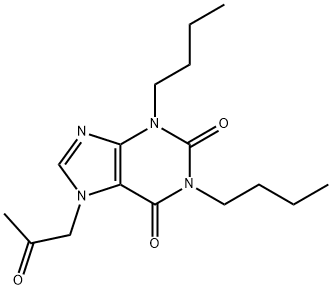Mechanism of action of Denbufylline
May 6,2022
Denbufylline, a xanthine derivative and PDE4 inhibitor, haseffects such as vasodilatation of cerebral vessels and potent activation of the hypothalamic-pituitary-adrenal axis. PDE4 is one of the cyclic adenos-ine monophosphate (cAMP)-specific phosphodiesteraseswhose tissue distribution is important in pathologies relatedto the central nervous and immune systems.

Mechanism of action
Denbufylline is a selective xanthine derivative that inhibits PDE IV and has bronchodilatory properties. Shown to exhibit negative inotropic effects by acting on verapamil-sensitive sites of Ca2+ channels in guinea pig ventricle papillary muscle independently of its PDE inhibitory activity. Denbufylline, a selective type 4 phosphodiesterase (PDE-4) inhibitor, is a potent activator of the hypothalamo-pituitary-adrenal (HPA) axis when given orally or intraperitoneally (i.p.) to adult male rats. Denbufylline was being developed as an agent for the therapy of dementia.
Related research
In experimen-tal animals,denbufylline increases adrenocorticotropichormone (ACTH),circulating corticosterone,luteinizinghormone,corticotrophin-releasing hormone,and cAMPcontent of the hypothalamic tissue, but is without effecton arginine vasopressin.
Treves andKorczyn studied patients with AD, mixed demen-tia, and VaD treated with denbufylline. No significant dif-ferences were found in comparison with placebo for thetreatment of AD or VaD, although patients who receiveddenbufylline tended to improve their cognitive scores.
- Related articles
- Related Qustion
Haemorheological alterations are found in AD patientsand in some forms of VaD, such as BD, in comparison withage-matched controls.....
May 6,2022Biochemical EngineeringNicergoline is an ergot derivative that may protect againstdegeneration of cholinergic neurones.....
May 6,2022APIDenbufylline
57076-71-8You may like





